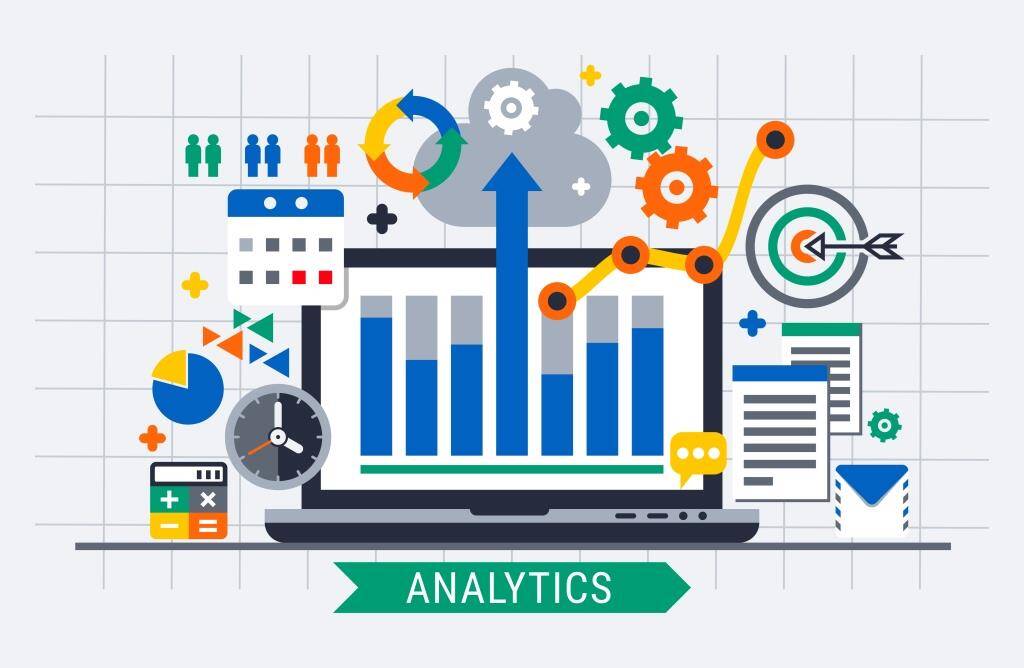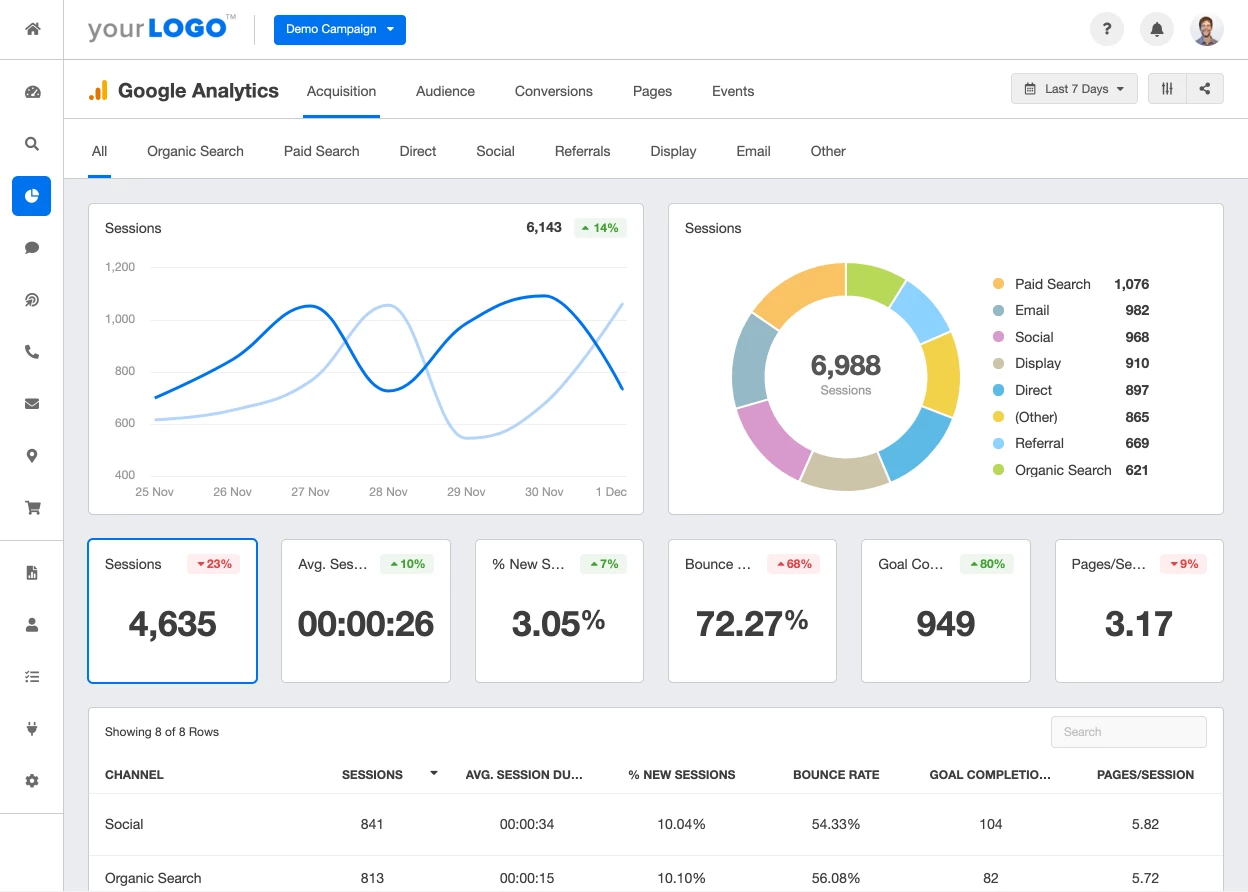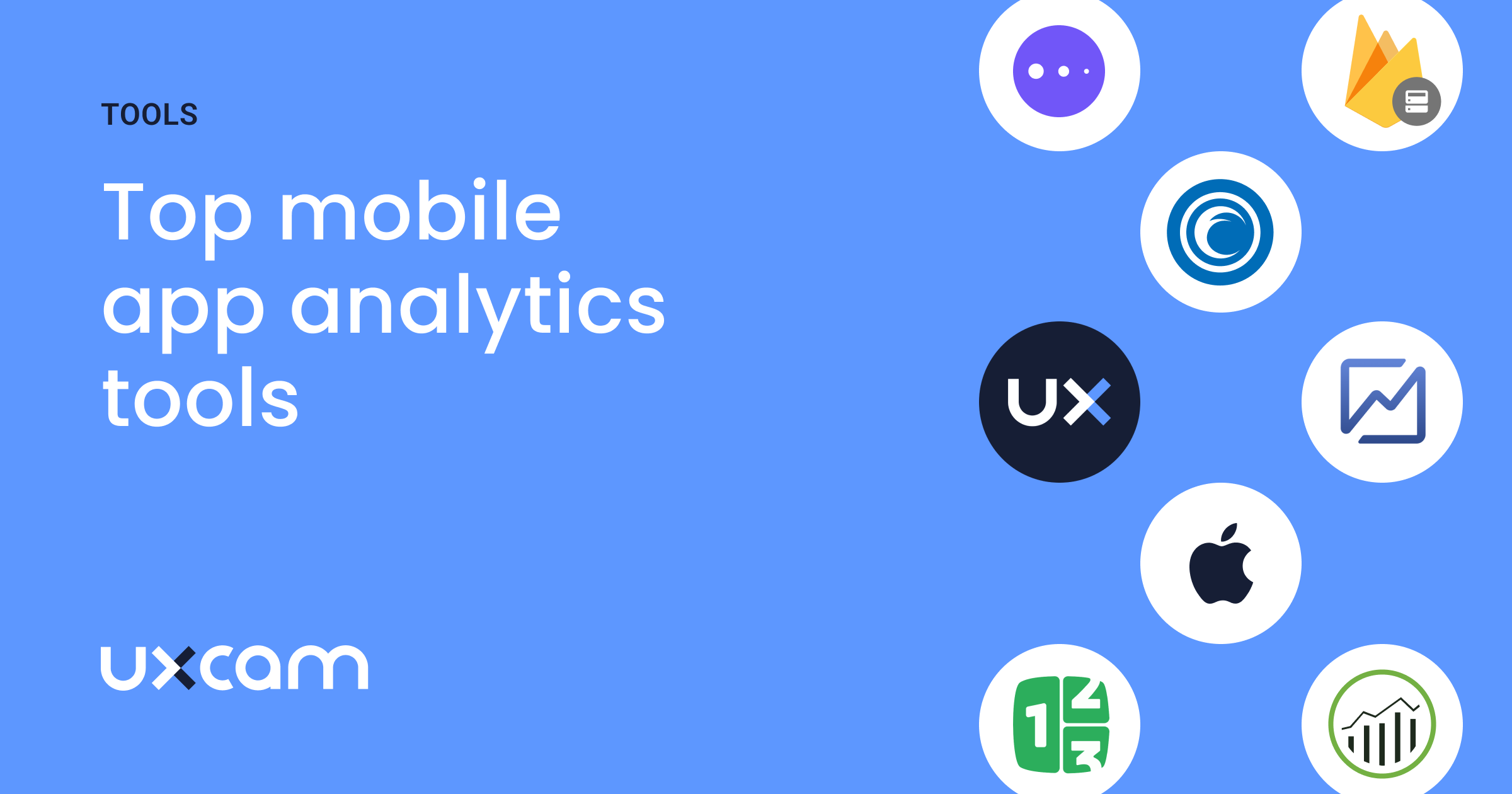Boost Your Procedures with Intelligent Analytics Equipments
Boost Your Procedures with Intelligent Analytics Equipments
Blog Article
Make Best Use Of Growth: How Analytics Drive Better Approaches
In today's data-driven landscape, organizations significantly recognize the pivotal function of analytics in shaping efficient development techniques. By harnessing information insights, companies can fine-tune their functional approaches, prepare for market changes, and enhance client interaction. Nonetheless, the obstacle lies not only in accumulating information yet in effectively translating it to drive substantial end results. As we discover the vital benefits and techniques connected with analytics, a vital concern arises: just how can organizations guarantee they are leveraging these understandings to open their full possibility? The response might redefine the future of strategic preparation.
Comprehending Information Analytics
Information analytics is a methodical computational analysis of data that allows organizations to discover meaningful patterns and understandings. This procedure incorporates a selection of techniques, including statistical analysis, anticipating modeling, and information mining, which collectively aim to change raw data into workable details - Analytics. By utilizing these methods, companies can make informed decisions that are rooted in empirical evidence as opposed to instinct alone
The structure of data analytics exists in its ability to manage substantial quantities of info from varied resources. This consists of organized information, such as data sources, and unstructured information, including social networks interactions and customer comments. Via the usage of specialized software and tools, analysts can draw out and refine this data efficiently, determining trends and relationships that may not be quickly evident.
Comprehending information analytics likewise includes acknowledging the value of data top quality and integrity. Accurate and trusted data is vital for significant evaluation; thus, companies need to execute robust information administration methods. The repetitive nature of analytics allows for continual refinement and enhancement of methods, making certain that organizations continue to be agile in the face of altering market dynamics and customer behavior.
Key Benefits of Analytics

One of the vital advantages of analytics is its ability to provide actionable understandings. Organizations can rapidly analyze huge amounts of information, uncovering patterns that might not be immediately noticeable.
Another substantial benefit is improved consumer understanding. Analytics tools enable businesses to segment their target market, track consumer behavior, and personalize marketing efforts. This targeted strategy not only improves client involvement yet also drives greater conversion rates.

Implementing Analytics Strategies
To fully recognize the advantages of analytics, companies must embrace organized strategies for application. This begins with clearly specifying goals that straighten with more comprehensive organization goals. By developing specific, quantifiable outcomes, organizations can concentrate their analytics initiatives on locations that produce the highest possible roi.
Following, organizations must focus on data governance to guarantee the honesty and security of the information being evaluated. This includes establishing methods for data collection, storage space, and accessibility while adhering to pertinent guidelines. Guaranteeing premium data is crucial for generating purposeful understandings.
Additionally, fostering a culture of data-driven decision-making index is essential. This needs training employees to interpret analytics searchings for and encouraging collaboration throughout divisions. When teams comprehend the worth of analytics, they are extra likely to integrate understandings right into their daily procedures.
Finally, companies must routinely evaluate and improve their analytics approaches. The landscape of information and innovation is continually evolving, and remaining adaptable will enable companies to take advantage of new tools and techniques properly. By applying these organized methods, companies can maximize the impact of their analytics efforts and drive lasting growth.
Devices for Efficient Analysis
Effective evaluation counts on a variety of devices that facilitate the removal of understandings from data - Analytics. These devices can range from basic spread sheet applications to innovative device finding out platforms, each serving an unique purpose in the analytical procedure
Information visualization software program, such as Tableau and Power BI, plays an important function in changing intricate datasets right into understandable graphical representations. These devices enable experts to identify patterns and trends promptly, enabling even more educated decision-making.
Statistical evaluation software program, like R and SAS, uses advanced capabilities for Discover More carrying out extensive evaluations, consisting of regression, hypothesis screening, and anticipating modeling - Analytics. These functions encourage organizations to attract meaningful final thoughts from their data, recognizing potential chances and dangers
Moreover, data source monitoring systems such as SQL and NoSQL databases offer the required infrastructure for storing and quizing huge quantities of data efficiently. They make sure that information is arranged and easily accessible for evaluation.
Lastly, organization intelligence systems integrate numerous data sources, giving a thorough sight of organizational efficiency. By utilizing these tools successfully, services can improve their logical abilities, enabling them to develop techniques that optimize development and improve general performance.
Study of Success
Effective organizations typically utilize data analytics to drive impactful techniques, as shown by a number of significant case research studies. By utilizing these insights, Netflix has effectively tailored its material recommendations, resulting in increased user engagement and subscriber retention.

In addition, Starbucks utilizes information analytics to determine ideal shop areas and refine its item offerings. By taking a look at client demographics and purchasing patterns, Starbucks successfully identifies high-potential markets and customizes its food selection to regional preferences, driving sales and customer loyalty.
These case studies illustrate that efficient utilization of information analytics can result in critical benefits, cultivating innovation and development within organizations throughout various markets.
Final Thought
Finally, the integration of analytics right into organizational techniques substantially enhances decision-making processes and cultivates lasting development. By leveraging data-driven insights, organizations can identify trends, expect market shifts, and maximize procedures. The reliable execution of analytics devices even more supports agility and technology, enabling organizations to browse affordable landscapes with greater accuracy. Eventually, a dedication to analytics not just drives instant efficiency enhancements yet additionally safeguards long-lasting success in an ever-evolving marketplace.
Information analytics is a systematic computational evaluation of information that allows organizations to reveal meaningful patterns and understandings.Recognizing data analytics additionally entails recognizing the significance of information quality and stability. Precise and reliable information is important for significant analysis; hence, companies have to implement robust information governance techniques.Next, organizations should prioritize data administration to make certain the stability and security of the data being evaluated.Successful organizations often utilize data analytics to drive impactful techniques, as evidenced by numerous noteworthy situation research studies.
Report this page